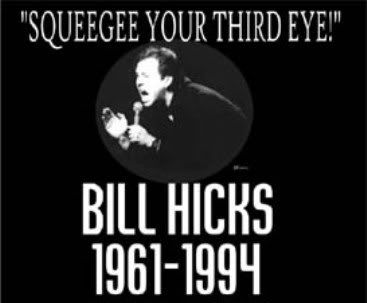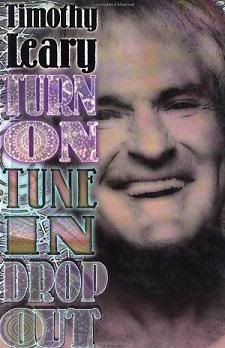RE: FKN NEWZ - G8 = JESUS LOVIN OIL SELLING SOCK PUPPETS
From: Nibiru
Date: Jul 12, 2008 2:34 AM
Labels: Deek Jackson, the fukn' news, The Truth Is Out There
Labels: Deek Jackson, the fukn' news, The Truth Is Out There
Labels: FUCK THE JUDGE, JURY NULLIFICATION, The Truth Is Out There


Labels: The Truth Is Out There



http://obambi. wordpress. com/2008/07/09/obamayesonfisa/
=============================


FISA PASSED!!! America lost it's privacy today!
----------------- Bulletin Message -----------------
From: ~Huntress of Truth~
Thank you
JERM
FISA PASSED!!! America lost it's privacy today!Lori
NoDancing@800 FEMA Concentration Camps Nationwide
FISA PASSED!!! America lost it's privacy today!!! :(The Scarecrow - Ron Paul '08
I added the vote count below...
~Scare
Vote count off of Senate site:
http://www. senate. gov/legislative/LIS/roll_call_lists/roll_call_vote_cfm. cfm?congress=110&session=2&vote=00168
Grouped By Vote Position
YEAs ---69 (Traitors! Who should NOT be re-elected!! )
Alexander (R-TN)
Allard (R-CO)
Barrasso (R-WY)
Baucus (D-MT)
Bayh (D-IN)
Bennett (R-UT)
Bond (R-MO)
Brownback (R-KS)
Bunning (R-KY)
Burr (R-NC)
Carper (D-DE)
Casey (D-PA)
Chambliss (R-GA)
Coburn (R-OK)
Cochran (R-MS)
Coleman (R-MN)
Collins (R-ME)
Conrad (D-ND)
Corker (R-TN)
Cornyn (R-TX)
Craig (R-ID)
Crapo (R-ID)
DeMint (R-SC)
Dole (R-NC)
Domenici (R-NM)
Ensign (R-NV)
Enzi (R-WY)
Feinstein (D-CA)
Graham (R-SC)
Grassley (R-IA)
Gregg (R-NH)
Hagel (R-NE)
Hatch (R-UT)
Hutchison (R-TX)
Inhofe (R-OK)
Inouye (D-HI)
Isakson (R-GA)
Johnson (D-SD)
Kohl (D-WI)
Kyl (R-AZ)
Landrieu (D-LA)
Lieberman (ID-CT)
Lincoln (D-AR)
Lugar (R-IN)
Martinez (R-FL)
McCaskill (D-MO)
McConnell (R-KY)
Mikulski (D-MD)
Murkowski (R-AK)
Nelson (D-FL)
Nelson (D-NE)
Obama (D-IL)
Pryor (D-AR)
Roberts (R-KS)
Rockefeller (D-WV)
Salazar (D-CO)
Shelby (R-AL)
Smith (R-OR)
Snowe (R-ME)
Specter (R-PA)
Stevens (R-AK)
Sununu (R-NH)
Thune (R-SD)
Vitter (R-LA)
Voinovich (R-OH)
Warner (R-VA)
Webb (D-VA)
Whitehouse (D-RI)
Wicker (R-MS)
NAYs ---28 ( Good American's? )
Akaka (D-HI)
Biden (D-DE)
Bingaman (D-NM)
Boxer (D-CA)
Brown (D-OH)
Byrd (D-WV)
Cantwell (D-WA)
Cardin (D-MD)
Clinton (D-NY)
Dodd (D-CT)
Dorgan (D-ND)
Durbin (D-IL)
Feingold (D-WI)
Harkin (D-IA)
Kerry (D-MA)
Klobuchar (D-MN)
Lautenberg (D-NJ)
Leahy (D-VT)
Levin (D-MI)
Menendez (D-NJ)
Murray (D-WA)
Reed (D-RI)
Reid (D-NV)
Sanders (I-VT)
Schumer (D-NY)
Stabenow (D-MI)
Tester (D-MT)
Wyden (D-OR)
Not Voting - 3 (Chicken shits or Lazy?)
Kennedy (D-MA)
McCain (R-AZ)
Sessions (R-AL)
Thanks to..
-[NannaIsSin]- Campaign for Liberty with Ron Paul
Not like they cared about search / wiretap warrants anyway...
jane
Irish American Patriot
QL - ABK {JSC} B&H-S. O. S.
V for Vigilant *READY!*
Irish American Patriot
The Man Common
The Senate on Wednesday affirmed its intention to protect from civil lawsuits telecom companies that helped the government wiretap Americans without court authorization after the Sept 11 attacks
It turned back three amendments that were offered during final debate on a bill that overhauls the rules on secret government eavesdropping
The votes suggest the surveillance bill will pass by an easy margin later Wednesday, and signal an end to almost a year of wrangling between the House and Senate, Democrats and Republicans, and Congress and the White House over the president's warrantless wiretapping program
The House approved the surveillance overhaul last month
The long fight on Capitol Hill has centered on one question: whether to shield from civil lawsuits telecommunications companies that helped the government eavesdrop on American phone and computer lines after the 9/11 terrorist attacks, without the permission or knowledge of a secret court created by the Foreign Intelligence Surveillance Act
The lawsuits allege that the White House and the companies violated U.S. law by going around the FISA court to start the wiretaps. The court was created 30 years ago to prevent the government from abusing its surveillance powers for political purposes, as was done in the Vietnam War and Watergate eras. The court is meant to approve all wiretaps placed inside the U.S. for intelligence-gathering purposes..
The law has been interpreted to include international e-mail records stored on servers inside the US
''This president broke the law,'' said Sen Russell Feingold, D-Wis
The Bush administration brought the wiretapping back under the FISA court's authority only after The New York Times revealed the existence of the program. A handful of members of Congress knew about the program from top secret briefings...
Most members are still forbidden to know the details of the classified program, and some object that they are being asked to grant immunity to the telecoms without first knowing what they did
The White House had threatened to veto the bill unless it immunized companies like AT&T Inc. and Verizon Communications Inc., from wiretapping lawsuits. About 40 such lawsuits have been filed...
They are all pending before a single federal district court
Sen Arlen Specter, R-Pa, compared the senate vote on immunity to buying a ''pig in a poke''
Opponents to immunity argue that only in court will the full extent of the program be understood, and only a judge should decide whether the program broke the law
Just under a third of the Senate, including presumptive Democratic presidential nominee Barack Obama, supported an amendment proposed by Sen Christopher Dodd, D-Conn., that would have stripped immunity from the bill...
It was defeated on a 32-66 vote Presumptive Republican nominee John McCain did not vote
Specter proposed an amendment to require a district court judge to assess the legality of warrantless wiretapping before granting immunity...
It failed on a 37-61 vote
Sen Jeff Bingaman, D-N.M., proposed that immunity be delayed until after a yearlong government investigation into warrantless wiretapping is completed...
His amendment failed on a vote of 42-56
The bill tries to address concerns about the warrantless wiretapping program by requiring inspectors general inside the government to conduct a yearlong investigation into the program
The new surveillance bill also sets new rules for government eavesdropping...
Some of them would tighten the reins on current government surveillance activities, and others loosen them compared with a law passed 30 years ago
For example, it would require the government to get FISA court approval before it eavesdrops on an American overseas...
Currently, the attorney general approves that category of electronic surveillance on his own
But the bill also would allow the government to obtain broad, yearlong intercept orders from the FISA court that target foreign groups and people, raising the prospect that communications with innocent Americans would be swept up...
The court would approve how the government chooses the targets, and how the intercepted American communications are to be protected
The original FISA law required the government to get wiretapping warrants for each individual targeted from inside the United States, on the rationale that most communications inside the U.S. would involve Americans whose civil liberties must be protected. But technology has changed..
Purely foreign communications increasingly pass through US wires and sit on American computer servers, and the law required court orders be obtained to access those as well
The bill would give the government a week to conduct a wiretap in an emergency before it must apply for a court order...
The original law only allowed three days
The bill restates that the FISA law is the only means by which wiretapping for intelligence purposes can be conducted inside the United States...
This is meant to prevent a repeat of warrantless wiretapping by future administrations
The bill is very much a political compromise reached against a deadline: Yearlong wiretapping orders authorized by Congress last year will begin to expire in August...
Without a new bill, the government would go back to old FISA rules, requiring multiple new orders and potential delays to continue those intercepts, something most of Congress did not want to see happen, particularly in an election year



Subscribe to The Man Common's Blog Here

Labels: hr 1955, The Truth Is Out There
Labels: Benjamin Fulford, Project Camelot, Ralph Ring, The Truth Is Out There


Labels: Bushism, dictator, george bush, johns hopkins, psilocybin mushrooms, The Truth Is Out There, timmothy leary
Labels: Heil Der Führer Barack Obama, The Truth Is Out There
Labels: News is covering the dangers of Gardasil, The Truth Is Out There